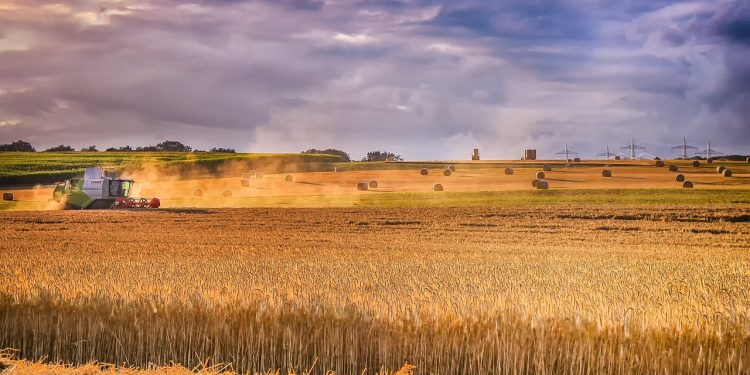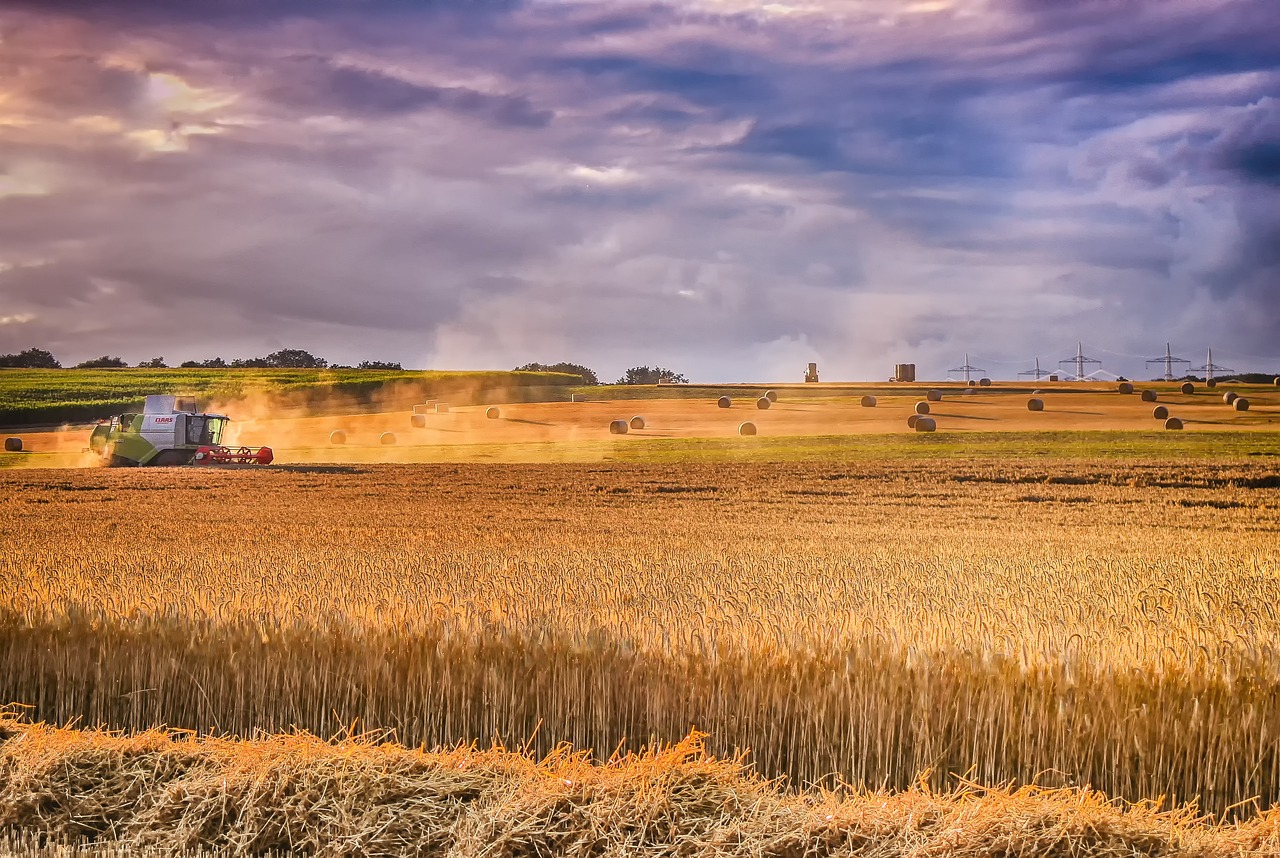For many Kenyans, the Kinangop town evokes mental pictures of chilly weather, dense fogs, and abundant food all year round.
Kinangop is known to be comparatively colder than most Kenyan towns, as it is in the foothills of the chilly Aberdare Ranges.
Its vegetables feed the main city, Nairobi, it often produces milk to the pitch of excess, and its profuse potatoes are the subject of lore.
Climate change increasingly threatens health, food and water security, and socio-economic development in Africa.
This has however changed in recent years, paving the way for milder fogs, sparser rainfall, and visible changes in the region’s verdure.
Indeed, researchers have observed varied effects on agricultural productivity in Kinangop, attributed to the effects of climate change.
Kinangop and many parts of Kenya, and Africa, are feeling the effects of climate change. Cyclones, floods, locust swarms, and desertification have been cited as some of the effects on sub-Saharan Africa.
The worst hit is always the most vulnerable, with impacts felt through food insecurity, population displacement, and stress on water resources.
The World Meteorological Organization (WMO) says that climate change increasingly threatens human health, food and water security, and socio-economic development in Africa.
The worst hit is always the most vulnerable, with impacts felt through food insecurity, population displacement, and stress on water resources.
Below are five notable disruptions associated with climate change in Africa.
Impacts of climate change on agriculture and food security
Africa’s food security is particularly vulnerable to climate change, considering the centrality of agriculture in many countries within the continent.
Extremities of climate change are known to diminish crop productivity through both biotic and abiotic stresses and disrupt food transport.
“One-third of the world’s droughts occur in sub-Saharan Africa, and Ethiopia and Kenya are enduring one of the worst in at least four decades. Countries such as Chad are also being severely impacted by torrential rains and floods,” explains the International Monetary Fund blog.
“African countries’ limited resilience against the negative impacts of today’s climate are already resulting in lower growth and development.”
The effects of climate change on productivity have been variously documented.
In a 2015 report, the Food and Agricultural Organization of the United Nations noted losses of up to 60 percent in animal numbers recorded during droughts in the past two or three decades in various SSA countries.
It cited studies showing decreased dairy yields under certain climate change scenarios, as well as a 23 percent rise in the cost of supplying water to animals from boreholes in Botswana.
Sub-Saharan Africa is among regions where climate change is expected to push the highest number of people into poverty if no concrete climate and development action takes place by 2050.
There are projections of considerable reductions in the mean yield of major cereal crops grown in SSA, under a worst-case scenario, to the tune of 13 percent in West and Central Africa, 11 percent in North Africa, and eight percent in East and Southern Africa.
“Millet and sorghum are the most promising crops, with a yield loss by 2050 of just five percent and eight percent, respectively, due to their greater resilience to heat-stress conditions, while rice and wheat are expected to be the most affected crops with a yield loss by 2050 of 12 percent and 21 percent, respectively,” according to the United Nations Framework Convention on Climate Change (UNFCCC).
Economic Impacts of climate change
As the African Development Bank (AFDB) explains in its 2019 report, economic growth and development across Africa are intrinsically connected to climate variability and change.
“African countries’ limited resilience against the negative impacts of today’s climate are already resulting in lower growth and development,” states the report.
“Indicative findings show lower GDP per capita growth ranging, on average, from 10 to 13 percent (with a 50 percent confidence interval), with the poorest countries in Africa displaying the highest adaptation deficit.”
Due to seasonal food scarcity and climate shocks such as droughts or floods, there are high cases of malnutrition, morbidity, and mortality in vulnerable populations.
The IMF notes that SSA is among places where climate change is expected to push the most people into poverty (39.7 million) if no concrete climate and development action takes place by 2050.
As a solution, the IMF separately prescribes financing adaptation to climate change as the more cost-effective solution over the oft-preferred disaster relief.
Health impacts
Sub-Saharan Africa has recorded several health impacts associated with increases in temperature and changes.
The UNFCCC observes that warmer temperatures and higher rainfall increase habitat suitability for biting insects and the transmission of vector-borne diseases. As an example, it cites the increase of malaria incidence often after periods of heavy rainfall.
“Malaria epidemics often occur after periods of unusually heavy rainfall. In addition, warming in the East African highlands is allowing malaria-carrying mosquitoes to survive at higher altitudes.”
Climate change has thus been linked to an increase in vector-borne diseases including malaria, lymphatic filariasis, onchocerciasis, schistosomiasis, African trypanosomiasis, and Rift Valley fever.
Countries such as Comoros, Madagascar, Malawi, Mozambique, Guinea Bissau, and Sierra Leone are noted to be particularly susceptible to storms and tropical cyclones.
Added to the health challenges associated with climate change is the threat of malnutrition.
United Nations Children’s Fund (UNICEF) notes that due to seasonal food scarcity and climate shocks such as droughts or floods, there are cases of malnutrition, morbidity, and mortality in vulnerable populations, especially among women and children.
Impacts on infrastructure
Floods and storms, which are among the more prominent natural disasters associated with climate change, have been associated with wanton damage to infrastructure.
This has doubly affected transport and communications while also leading to economic losses to governments and investors.
For instance, a 2015 policy brief asserted that climate change posed a threat to increase road maintenance costs by 270 percent.
Large coastal cities including Abidjan, Accra, Dakar, Dar-es-Salaam, and Lagos are vulnerable to floods because of rising sea levels.
It followed a study of the effects of climate change on road maintenance costs due to precipitation, flooding, and temperature stress in Central, East, South, and West Africa
Countries such as Comoros, Madagascar, Malawi, Mozambique, Guinea Bissau, and Sierra Leone are noted to be particularly susceptible to storms and tropical cyclones.
Large coastal cities including Abidjan, Accra, Dakar, Dar-es-Salaam, and Lagos are vulnerable to floods because of rising sea levels.
The psychological impacts
Tied to every adversity of climate change are impacts that may not be quantified in straightforward economic terms, but are felt to a profound degree by certain populations.
The CARE Climate Change and Resilience Information Centre puts this oft-ignored dimension in elaborate terms.
“If for example communities in Mozambique lose members after a terrible cyclone or poor families in the Horn of Africa lose livelihood assets from droughts or floods.
“Whether it is farm animals, or harvests, this not only results in economic losses but may bear psychological impacts, may adversely impact the health conditions of children for years, or even lead to girls not being able to attend schools because they might be required to work in the households to make good for lost assets.”
Impacts of climate adversities on mental health might include anxiety, depression, social dysfunction, and loss of confidence that afflict the surviving populace.
O artigo foi publicado originalmente em Cornell Alliance for Science.




















































